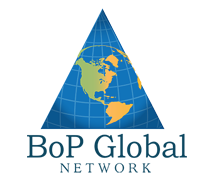As we witness growing inequality and accelerating environmental degradation around the world, commercial attention in the years ahead will inevitably come to focus more on breakthrough and disruptive innovations that directly confront these challenges. Increasingly, competitive advantage will hinge on innovations incubated at the base of the pyramid (BoP)—the ability to create tomorrow’s sustainable enterprises from the bottom up, by commercializing new, disruptive technologies through innovative business models focused on the underserved at the base of the world income pyramid.

With this theme in mind, Enterprise for a Sustainable World (ESW) and The University of Vermont’s School of Business Administration, in collaboration with the BoP Global Network, are organizing the second BoP Global Network Summit. The event will be held July 16th and 17st, 2015 at the UVM Davis Center in Burlington, VM - USA.

The 2015 Summit’s main objectives will be to provoke, discuss, and then act. This will not be your typical conference filled with talking heads and plenary presentations. Instead, the focus will be on Challenge sessions (e.g. financing, scaling, assessing impact) and action-oriented Domain sessions focused on Food & Agriculture, Materials, Inclusive Health, Housing, Mobility, Energy, and ICT. The Summit will also bring together entrepreneurs, executives, financiers, change agents, and the BoP Global Network Lab leaders representing more than 20 countries from around the world and will engage leading edge examples of bottom-up innovation from around the world, including some right here at home in the US.
Three “Provocation Plenaries” will aim to jog creative thinking around the following themes:
BoP Innovation: Where Will the Disruptive and Leapfrog Technologies Come From? Significant attention has been paid to the challenges of business model innovation, co-creation, and organizational innovation in facilitating BoP business venturing. Less attention has been paid to where the technologies and innovations that drive such ventures come from and how they might be best developed. This session focuses on the three primary sources of new technology for driving inclusive and sustainable business development and how they are best driven from the bottom up: Exponential technology, shelf technology, and grassroots/indigenous technology.
Can BoP Business Logic Be Applied to the Developed World? For the past decade the primary focus has been on the challenges of building successful BoP businesses in the impoverished rural areas and megacity slums of the developing world. Comparatively little attention, however, has been paid to how innovation from the bottom up might create opportunity and better serve the growing underclass in the US, Europe and other parts of the Rich World. This session focuses on some innovative new “homegrown” models from Vermont and the US, with potential for applicability around the world.
Beyond Silos: Systems Thinking for BoP Sustainability. Most BoP ventures to date have been focused on the sectors and industries that define business at the top of the pyramid: water, energy, transportation, telecommunications, food, housing, health, and education, to name just a few. Yet increasingly we see that the world’s challenges, particularly those at the base of the pyramid, do not fit neatly into traditional sectoral or industry compartments. Instead, they cross boundaries and require broader ecosystems of partners to succeed. This session focuses on the challenges and opportunities of systems thinking, boundary spanning, ecosystems and interconnections in creating and scaling BoP innovations.
Join us in Burlington for the 2nd BoP Global Network Summit!